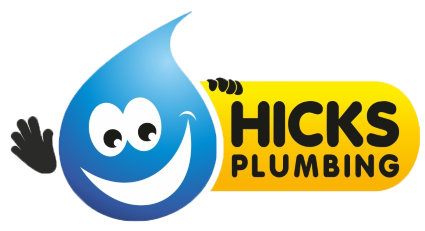As winter arrives, freezing temperatures bring more than just frosty mornings and snow-covered landscapes; they also bring the increased risk of burst pipes. This common winter plumbing issue occurs when freezing water expands inside pipes, creating pressure that can cause them to rupture. Burst pipes can lead to extensive water damage, costly repairs, and significant inconvenience. Knowing how to address this problem quickly and effectively can save you time, money, and stress. Here are five critical steps to deal with burst pipes during cold weather and measures to prevent future occurrences.
1. Turn Off the Water Supply Immediately
The first step to controlling a burst pipe is shutting off your home’s main water supply. This action halts the flow of water, limiting damage to your property. Your main water shut-off valve is often located in your basement, utility room, or near your water meter. Make sure everyone in your household knows its location and how to turn it off in case of emergencies.
Turn off your boiler or water heater in addition to the water. This prevents potential damage to your heating system, which could occur if it continues drawing water from a damaged pipe. Acting quickly here minimizes the risk of extensive flooding and helps you gain control of the situation.
2. Drain Your Pipes
After shutting off the main water supply, the next step is to drain the pipes to remove any remaining water. Start by opening all faucets in your home, beginning with those on the lowest level and working your way up. Don’t forget to flush your toilets to drain water from the tanks. This reduces pressure within the plumbing system and helps prevent further leaks or bursts in other sections of the pipes.
By emptying the pipes, you not only limit additional water flow but also create a safer environment for assessing the damage and making repairs.
3. Locate and Contain the Leak
Finding the source of the burst is crucial for addressing the damage effectively. Look for indications of leaks, cracks, or dripping water in any pipes that are visible. Common areas for bursts include basements, crawl spaces, and exterior walls where pipes are more exposed to cold temperatures. If you can’t locate the leak, look for secondary signs such as water pooling on floors, damp ceilings, or reduced water pressure throughout your home.
Once the burst has been located, take action to limit the harm. To collect dripping water, place a bucket or other sizable container underneath the leak. Use towels or mops to soak up water to prevent it from spreading to other parts of your home. This containment will help minimize water damage to floors, walls, and belongings.
4. Contact a Professional Plumber
While it’s possible to take temporary measures to control a burst pipe, permanent repairs require professional expertise. Attempting to repair or replace damaged pipes on your own can lead to further complications if done incorrectly.
A professional plumber has the equipment and know-how to fix the burst pipe efficiently and check your plumbing system as a whole for faults. They can also recommend solutions like insulating exposed pipes or upgrading older plumbing materials to help prevent future issues.
If you’re in Vienna, VA, or nearby areas, reach out to Hicks Plumbing Services for prompt and reliable assistance. Their team of experienced professionals specializes in handling plumbing emergencies, including burst pipes. Visit their website, contact them, or schedule a service appointment today.
5. Prevent Future Burst Pipes
Prevention is the key to avoiding the stress and expense of dealing with burst pipes. After addressing the immediate issue, take steps to protect your plumbing system from future damage:
- Insulate Exposed Pipes: Using heating tape or pipe insulation, exposed pipes in unheated locations such as crawl spaces, attics, and basements can be protected.
- Seal Drafts: Check windows, doors, and exterior walls for drafts, and seal them with caulk or weatherstripping to keep cold air out.
- Maintain a Consistent Indoor Temperature: Even when you’re away, keep your thermostat set to at least 55°F (13°C) to prevent pipes from freezing.
- Let Faucets Drip: Let a tiny trickle of water run from your faucets when it’s really cold outside.
- Inspect Your Plumbing Regularly: Schedule routine inspections with a professional plumber to identify and address potential problems before they escalate.
By implementing these preventive measures, you can reduce the risk of burst pipes and ensure your plumbing system remains in good condition throughout the winter months.
Quality Plumbing Services in Herndon, VA & Nearby Areas
Dealing with burst pipes during cold weather can be overwhelming, but you don’t have to face it alone. For homeowners in Vienna, VA, and surrounding areas, Hicks Plumbing Services offers expert solutions to handle plumbing emergencies and prevent future issues. Visit our website to learn more about our services, contact us to schedule an appointment, or call today to ensure your home is prepared for winter’s challenges. Don’t let burst pipes disrupt your peace of mind—act now to protect your home and family from costly water damage.
